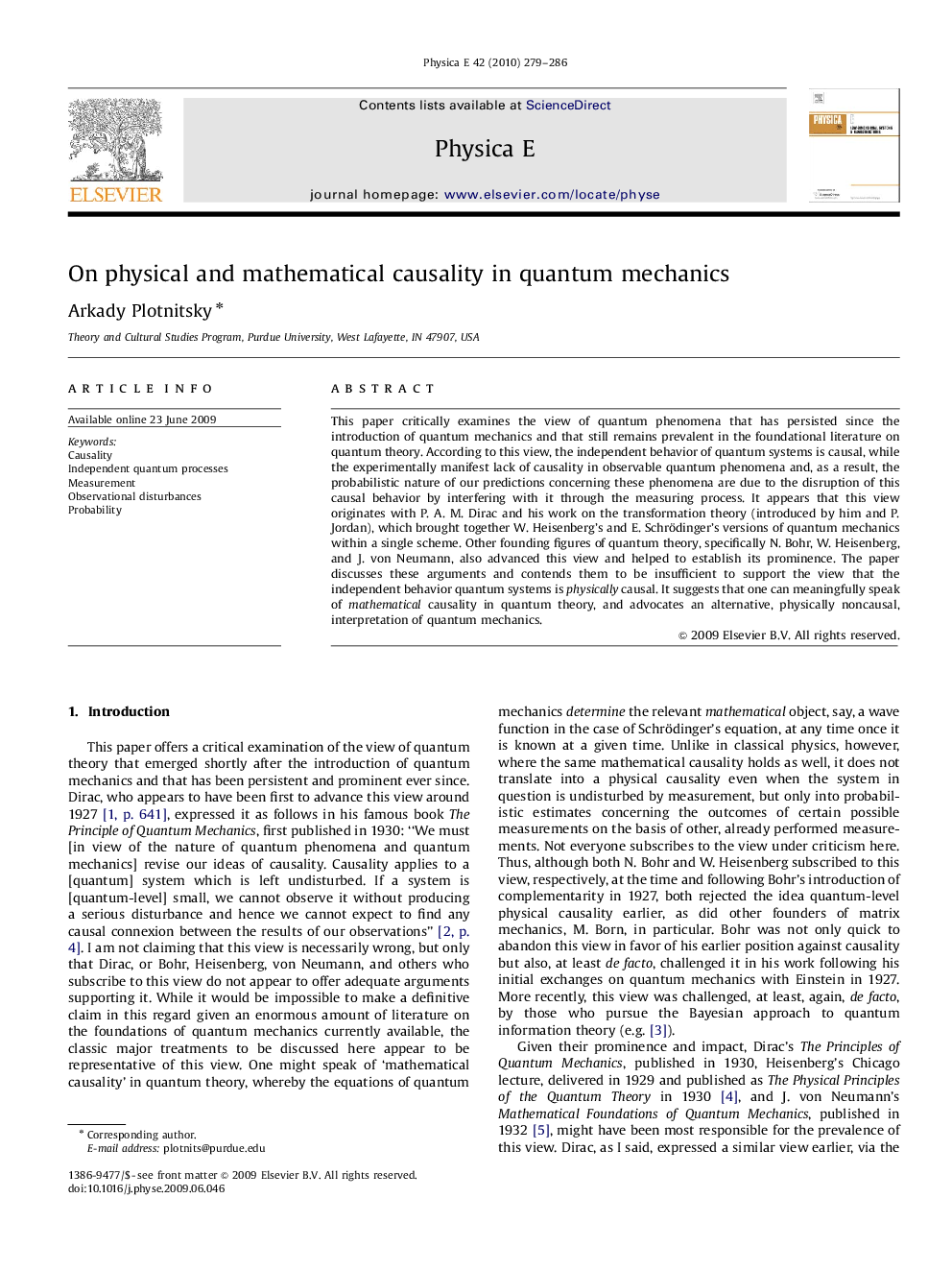| Article ID | Journal | Published Year | Pages | File Type |
|---|---|---|---|---|
| 1546419 | Physica E: Low-dimensional Systems and Nanostructures | 2010 | 8 Pages |
Abstract
This paper critically examines the view of quantum phenomena that has persisted since the introduction of quantum mechanics and that still remains prevalent in the foundational literature on quantum theory. According to this view, the independent behavior of quantum systems is causal, while the experimentally manifest lack of causality in observable quantum phenomena and, as a result, the probabilistic nature of our predictions concerning these phenomena are due to the disruption of this causal behavior by interfering with it through the measuring process. It appears that this view originates with P. A. M. Dirac and his work on the transformation theory (introduced by him and P. Jordan), which brought together W. Heisenberg's and E. Schrödinger's versions of quantum mechanics within a single scheme. Other founding figures of quantum theory, specifically N. Bohr, W. Heisenberg, and J. von Neumann, also advanced this view and helped to establish its prominence. The paper discusses these arguments and contends them to be insufficient to support the view that the independent behavior quantum systems is physically causal. It suggests that one can meaningfully speak of mathematical causality in quantum theory, and advocates an alternative, physically noncausal, interpretation of quantum mechanics.
Keywords
Related Topics
Physical Sciences and Engineering
Materials Science
Electronic, Optical and Magnetic Materials
Authors
Arkady Plotnitsky,
